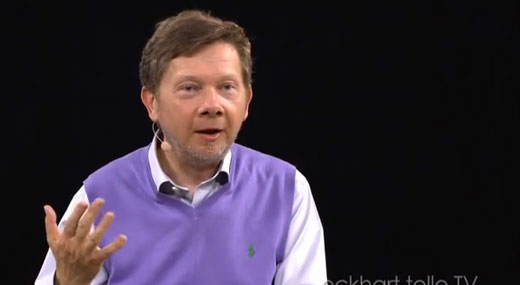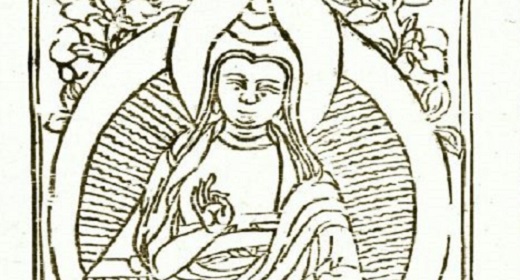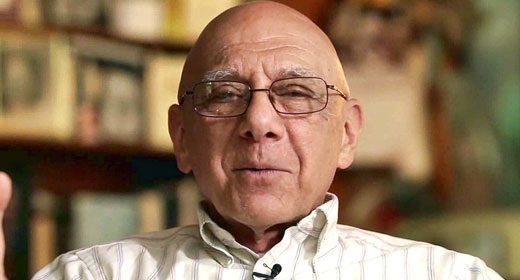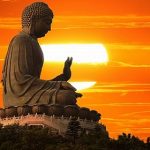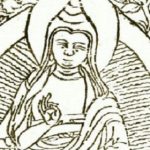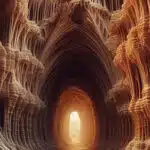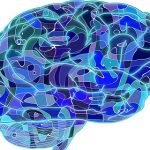by Carl Jung: “Normal” man convinces me, even more than the lunatic, of the powerful autonomy of the unconscious. The psychological theory of the psychoses can take refuge behind real or imaginary organic disturbances of the brain and thus invalidate the importance of the unconscious.
The psychological theory of the psychoses can take refuge behind real or imaginary organic disturbances of the brain and thus invalidate the importance of the unconscious.
But such a device -not applicable to normal humanity. What is actually happening in the world is due not merely to “dim remnants of formerly conscious activities,” but to volcanic outbursts from the very bottom of things. Otherwise, nobody could be astonished. Yet the very people who give the least credit to the autonomy of the unconscious are the most surprised.
Our consciousness, being still young and frail, has a tendency to make little of the unconscious. This is understandable enough, for a young boy should not be too deeply impressed by the majesty of his parents if he wants to accomplish something in his own right and way. Our consciousness has developed cumulatively, as well as individually, from the darkness and the twilight of the primordial unconscious. There were Psychical processes and functions long before there was an ego-consciousness. Thinking existed long before any human voice said, “I am conscious of thinking.”
The primitive “perils of the soul” consist mainly of dangers to consciousness. Fascination, bewitchment, loss of soul, possession, and so on are clearly phenomena of dissociation, regression, and suppression of consciousness by unconscious contents. As we have seen, even civilized man is not yet out of the woods. The unconscious is the mother of consciousness. Where there is a mother there should also be a father, but he seems to be unknown. Consciousness, the frail youngster, may deny his father, but he cannot deny his mother. That would be too preposterous, since one can see in every child how hesitatingly and haltingly the ego-consciousness develops from a fragmentary consciousness of the moment, and how it slowly appears out of the complete darkness of mere instinctivity.
The careful analysis of human personality has accumulated a vast amount of evidence affording definite proof of the existence of an autonomous, instinctive activity, beginning conscious layer of the mind and ending in activities that strongly influence conscious behaviour. I omit a discussion of this evidence here, as the reader will find plenty of such material in the following essays.
The conscious mind is based upon, and results from, an unconscious psyche which is prior to consciousness and continues to function together with, or despite, consciousness. Although there are many cases of conscious contents that become unconscious again-through repression, for instance-the unconscious as a whole is far from being a relic of consciousness. (Are the psychic functions of animals remnants of consciousness?) The unconscious is prior to conscious mind, and it is autonomous; it has a law unto itself.
As I pointed out earlier, there is little hope of finding in the unconscious an order similar to that of the ego-consciousness. Superficially studied, at least, the unconscious is not encouraging in this respect. So far as research has gone, it does not look as if we were likely to discover an unconscious ego-personality, something like a Pythagorean “countersun.” Yet we cannot overlook the fact that, just as consciousness arises from unconsciousness, the ego-centre also emerges from a dark depth in which it was somehow contained in Potentia. As a human mother can only produce a child potentially human, whose nature was concealed in her during gestation, so we are almost forced to believe that the unconscious cannot be an altogether chaotic accumulation of instincts and images. Something must hold it together. Its centre cannot be the ego, since the ego was born in the conscious mind and turns its back on the unconscious, seeking to deny it as best it can. Or can it be that the unconscious lost its centre when the ego was born? If this is so, we should expect the ego to be far superior to the unconscious in strength of influence and of purpose. The unconscious would follow meekly in the wake of ego-consciousness. This, however, is only how we wish things to be. I admit that it is possible to base a manly and healthy ideal upon this view; it is good for youthful illusions, but its truth is questionable. The facts unfortunately point quite the other way: consciousness all too easily succumbs to unconscious influences, and these are often enough more to the point or more intelligent than the conscious judgments. It is also true that -unconscious motives often overrule conscious decisions in the main issues of life. Even individual fate largely hangs upon the fact that unconscious factors are often predominant.
A close examination of the conscious functions shows how much they depend upon an undisturbed use of memory. But memory often suffers from interference by unconscious processes. Moreover, it generally functions in an automatic way. It ordinarily uses the bridges of association, but frequently in such an extraordinary way that we must attentively reconsider the whole process of remembering if we wish to discover how certain memories managed to appear in consciousness. And not rarely the bridges remain altogether undiscoverable. In such cases it is impossible to refute the hypothesis of unconscious spontaneity. Another case is the function of intuition, which largely depends upon unconscious operations of a complex nature. Because of this peculiarity, I have defined it as “perception of relations via the unconscious.”
Normally, the unconscious collaborates with consciousness in a smooth and unobtrusive way, so that one does not even realize its existence. But if an individual deviates too much from the original instinctive pattern, then he realizes the full impact of the unconscious forces. What is true of the individual holds also for the social group. The collaboration of the unconscious is intelligible and purposive. Even when it is in opposition to consciousness, it acts in a compensatory or complementary way, as if it were trying to reestablish the lost balance. The more serious the mental difficulty, however, the more incomprehensible are ‘the manifestations of the unconscious. This is particularly the case in neuroses and psychoses.
There are dreams and visions of such an informative kind that the people who have them refuse to believe that they derive from an unconscious psyche. They prefer to suppose that they issue from a sort of superconsciousness. Such people usually distinguish between a quasi-physiological, or instinctive, unconscious and a psychic sphere, or layer, “above” consciousness which they style the superconsciousness. As a matter of fact, the psyche called the superior or the universal mind in Hindu philosophy corresponds to what the West calls the unconscious. Certain dreams, visions, and mystical experiences, however, suggest the existence of a consciousness in the unconscious. But, if we assume a consciousness in the unconscious, we are at once faced with the difficulty that consciousness cannot exist unless there is a subject-an ego-to which mental contents are related. Consciousness needs a centre, an ego to whom something is conscious. We know of no other kind of consciousness, nor can we imagine a consciousness without an ego. Consciousness cannot exist when there is no one to say, “I am conscious.”
I must admit that there are experiences that give plausibility to the hypothesis of an ego in the unconscious realm. Still, for the reasons already mentioned, I feel rather hesitant to adopt it, the more so as I should not know what or whom to call the ego of that consciousness. Moreover, I am unable to separate an unconscious below from an unconscious above, since I find intelligence and purposiveness below as well as above. It is obvious that the centre of a transcendental consciousness cannot be the human ego, since the ego has neither a hand in producing such experiences nor the necessary intelligence to understand them. It can only be their victim or the receiver of divine grace.
There is not much merit in speculating about things we cannot know. It is best to refrain from venturesome statements that go beyond the boundaries of science. This is neither malevolent criticism nor scepticism; I simply hold that honesty demands that we remain within the narrow confines of our knowledge. It is not only immodest, it is intellectually immoral to make assertions that go beyond the reach of human cognition. The matters we have just considered are partial manifestations of processes that in their entirety are inaccessible to our cognition. As I said before, they may have, and occasionally they seem to have, qualities that we might refer to a consciousness not identical with our own. But as long as we have no other means of ascertaining the existence of a transcendental consciousness we have to admit our uncertainty.
As far, then, as my observations go, I have not discovered in the unconscious anything like a personality comparable to the conscious ego. But, although a definite alter ego seems not to exist (except in the rare cases of dual personality), there are at least traces of personalities in the manifestations of the unconscious. A simple example is the dream, in which a variety of real and imaginary people enact the dream thoughts. In nearly all important cases of dissociation the manifestations of the unconscious assume a distinctive character. The unconscious personates. This phenomenon has supported and renewed the belief in spirits. But a careful examination of the behaviour and psychic make-up of such personations reveals their fragmentary character. They seem to represent complexes split off from a greater whole; splinters chipped from the main block.
I have constantly been impressed by the peculiarly organized character of dissociated fragments. They resemble whole or partial personalities. Often I have asked myself whether we are not justified in assuming that, if the splinters have personality, then the block from which they were separated must have personality to a still higher degree. The conclusion seems logical, and the case is the same whether the fragments are big or small. Why, then, should not the whole have personality too? This personality, of course, would be a completely concealed and inaccessible entity. Personality does not necessarily include consciousness. It can be dormant or, at most, dreaming.
Nevertheless, the general aspect of unconscious manifestations is in the main chaotic and irrational, in spite of many symptoms of intelligence and purposiveness. The unconscious produces dreams, irrational fantasies, peculiar visions, primitive emotions, grotesque or fabulous ideas, and the like exactly what one would expect of a dreaming person stirring in his sleep. The unconscious seems to have a personality that has never been awake or conscious either of a continuity in itself or of a life lived. The only question is whether the hypothesis of such a dormant and deeply concealed personality is tenable. It may be that all of the personality to be found in the unconscious is contained in the personations mentioned before. If this is the case, all my guesswork would be futile. On the other hand, there possibly exist concealed personalities that are far less fragmentary which is to say, more complete.
I am convinced that there is evidence for this view, although unfortunately it belongs to the intricacies and subtleties of psychological analysis.
It is the accepted theory that sex is determined by a preponderance of male-or female-producing genes in the combined chromosomes of sperm and ovum after fertilization has taken place. Biologically, therefore, a man contains female-producing elements, a woman male-producing elements, a fact of which each, as a rule, is quite unaware. Certainly there are few men who could or would care to tell us what they would be like if they were females. Yet all men must have more or less latent female components if it is true that the female-forming elements continue to live and perpetuate themselves throughout the body cells of the entire male organism. How these sex-determining elements function in the body is not known, but there can be no doubt that they are at least indirectly responsible for the existence of the male and female sex hormones which in turn govern the secondary sex characters, that is, the traits we associate with “masculineness” or “feminineness” in the individual.
It is easy to observe that women at a more advanced age develop masculine qualities, grow a moustache, acquire a rather acute and sometimes obstinate mind, and often develop a deeper voice. Men of advanced age, on the contrary, become mellow, “lovely” old men-soft, kind to children, sentimental, and rather emotional; their anatomical forms become rounded, they take interest in the family and home life, in genealogy, gossip, and so on. It is by no ‘ means rare for the wife to take over business responsibilities in later life, while the husband plays a merely helpful role. If you study the photographs of a primitive tribe, and if you compare the old people with the young, you will see what becomes at a more advanced age of lovely young girls and of animalistic, brutal young men. A completely hidden character of the opposite sex comes into the foreground.
The observer who has sharpened his eyes and acquired a good deal of practical experience begins to discover symptoms (often astonishing ones) of the man in the woman, and of the woman in the man. When people are at their best, there is not much chance of seeing anything of their other side. But if you observe a man when he is caught in a mood, you find him to be a different person. Sometimes the change is quite remarkable: a man who is ordinarily altruistic, generous, amiable, and intelligent becomes, when a certain mood seizes upon him, a slightly mean, nastily egotistical, and illogically prejudiced character. A woman of a usually kind and peaceable disposition becomes an argumentative, obstinate, narrow-minded shrew if it should come into her head to use a half-understood idea heard in a conversation six weeks or months ago. (If the man is the woman’s husband, they will soon have learned the art of picking out irritating topics that inevitably bring out the “other side!”)
Should you study this world-wide experience with due attention, and regard the ‘other side’ as a trait of character, you will produce a picture that shows what I mean by the anima, the woman in a man, and the animus, the man in a woman. By putting together all the cases in which a man has reacted to the influence of a mood (which is an emotion or affect without sufficient cause), you can build up a definite personality. We avoid doing this, as a rule, because when we are fond of people we bate to put them in an unfavourable light. For the psychologist, however, to do so is a professional task. The analysis is not simple for most of us to make, because we are not used to dividing an intimate friend into two separate characters. We are merely irritated by the contradictions in the one person. ‘We do habitually sketch out the presumable character of a man, whom we have never met, from the contents of the letters he has written us; and in a similar way we can sum up all of a man’s traits that become visible under the stress of emotion, which affords the ideal condition for the manifestation of unconscious contents. Under its possession one is “beside one’s self,” and the unconscious gets a chance to occupy the foreground.
As a matter of fact, an emotion is the intrusion of an unconscious personality. The unconscious contents it brings to light have a personal character, and it is merely because we never sum them up that we have not discovered this other character long ago. To the primitive mind, a man who is seized by strong emotion is possessed by a devil or a spirit; and our language still expresses the same idea, at least metaphorically. There is much to be said in favour of this point of view.
The character that summarizes a person’s uncontrolled emotional manifestations consists, in the first place, of his inferior qualities or peculiarities. Even people we like and appreciate suffer from certain imperfections of character that have to be taken into the bargain. When people are not at their best, such flaws become clearly visible. I have called the inferior and less commendable part of a person the shadow. We have met with this figure in literature; for instance, Faust and his shadow Mephistopheles. There is an excellent description of this figure in E. T. A. Hoffmann’s The Elixirs of the Devil.

